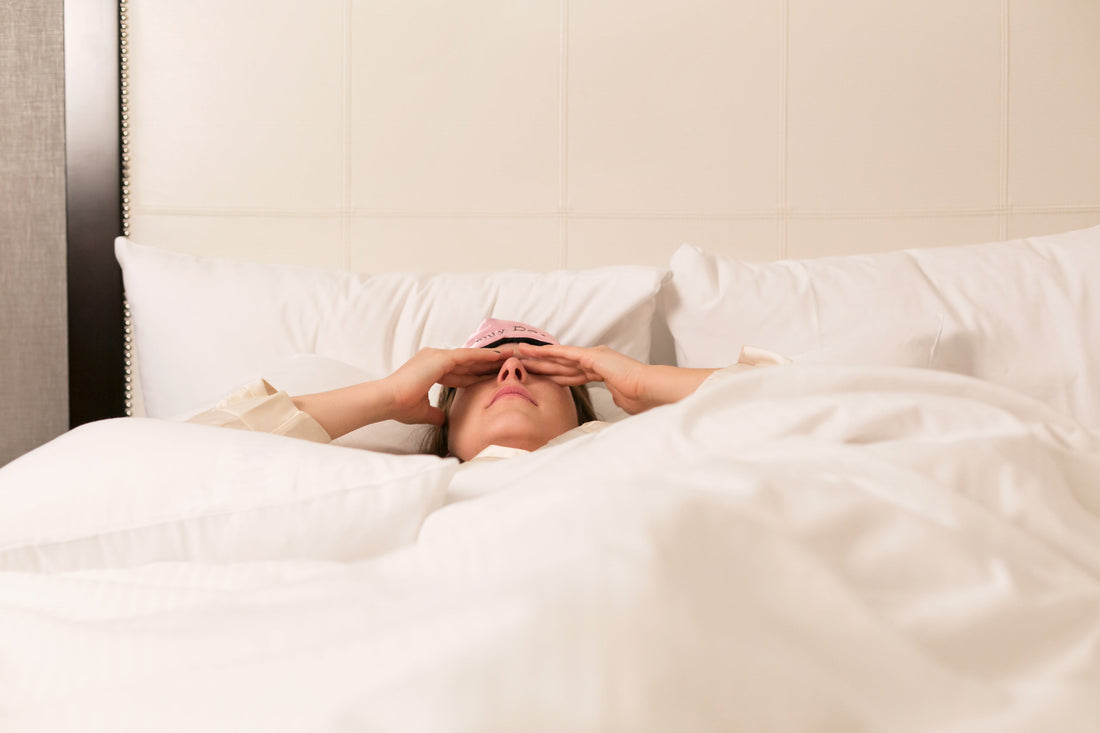
Relationship Between Sleep Quality and Nutrition
Oksana RozponczykShare
Sleep quality and nutrition
Did you know that there is a relationship withing sleep quality and nutrition?
Recent research does not fully determine whether sleep quality affects the diet and the other way around, however, there does seem to be a link. What we know is that good quality sleep is essential to our health and sense of well-being. 1 2
During our sleeping body and mind relax and recharge, giving us energy for the next day. Deprivation of our sleep could cause health issues. That is why the sleep hygiene is important.

Sleeping quality
Diet and sleep hygiene seem to be linked. Did you know that having enough good quality sleep, combined with eating regularly the next day determines the healthy production of hormones?
Therefore, following a healthy, balanced diet is one of the best ways of achieving good sleep hygiene. Research shows that the Mediterranean diet seems to support better sleep hygiene and lower levels of insomnia.
Sleep offers the body and brain time to restore and recover, affecting nearly every tissue in the body. According to the National Sleep Foundation, most adults need at least 7 to 9 hours of sleep.
Poor sleeping and weight gain
Did you know that there is a link between poor sleep and weight gain?
Scientific research considerably checks the relationship between obesity and insufficient sleep. Insufficient sleep cause disruption of the hormones that govern appetite and makes us hungrier.
Skipping out on adequate sleep can lower the body’s muscle mass and can result in extra visceral fat around the middle 3 4

Less sleep high in fat diet
Did you know that people who sleep less often consume more calories and tend to choose food high in fat content?
Inadequate sleeping supports late eating into the night, compounding the problem and leading to more empty caloric intake and less of an opportunity for your body fat stores to be used.
According to the The Association Between Sleep Duration and Weight Gain in Adults - 6-year study:
- Sleep deprived equals more ghrelin released and less leptin released.
- Sufficient sleep equals less ghrelin released and more leptin released.
Sleep friendly food
Which food is sleep friendly?
Avoid:
- Spice food, caffeine, energy drinks, soda, and alcohol.
- Less than 7 hours sleep per night.
- Sugar-sweetened beverages are associated with poor sleep quality.
- Working out too close to bedtime.
- Fatty foods, as digestion naturally slows when you sleep
- Going to bed too soon after eating fatty foods can lead to disrupted sleep.
- Don’t eat too late, give your body time to digest after eating large meals at least around 2-3 hours before sleep last meal.
Recommended:
- Small protein or carbohydrate snack before bed.
- 7-9 hours sleep per night.
- Plenty of time to relax before bedtime is another element of sleep hygiene.
- Move your body, try to schedule regular exercise to improve your sleep.
- Foods high in B vitamins; B vitamins are believed to help regulate melatonin e.g. fish, lean poultry and meat, legumes, eggs, and dairy.
Tryptophan is an amino acid that promotes sleep and is found in small quantities in all protein foods e.g. eggs, soybeans, fish, cheese, and meat.




